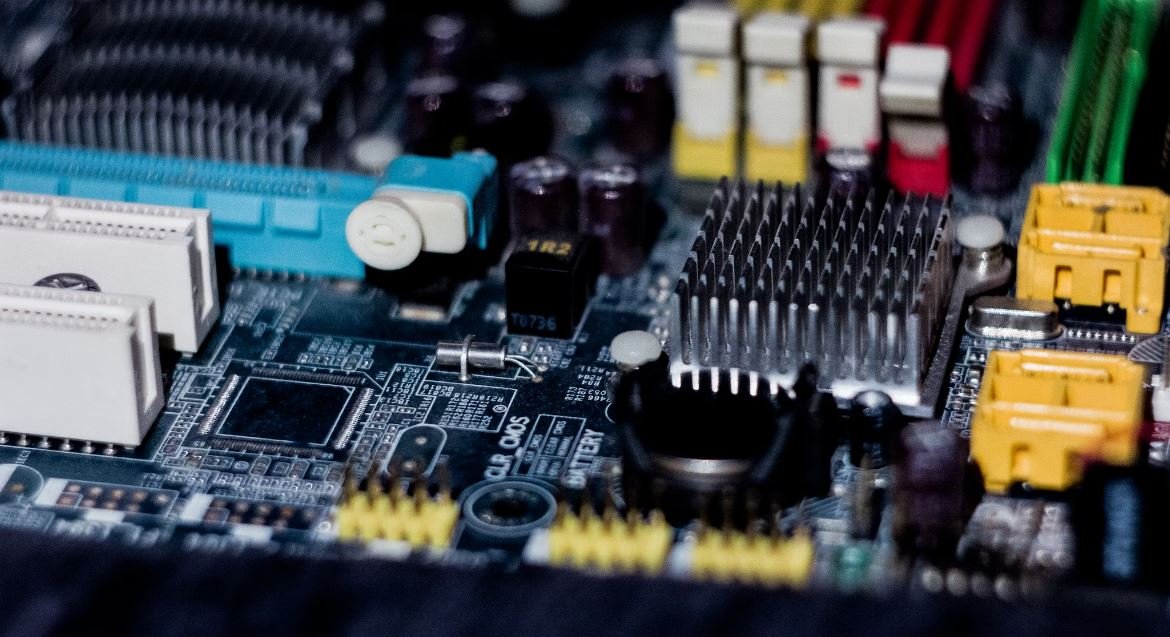Is SpaceX or NASA Better?
When it comes to space exploration and technology, two prominent names often come to mind – SpaceX and NASA. Both are well-known for their contributions to the field, but which one is truly better? In this article, we will compare and contrast the two organizations to help you understand their strengths and weaknesses.
Key Takeaways:
- SpaceX and NASA are both significant players in the space industry.
- SpaceX is a private company led by Elon Musk, while NASA is a government agency.
- SpaceX focuses on commercial spaceflight, while NASA focuses on scientific research and exploration.
- SpaceX has achieved several notable milestones in space technology.
- NASA has a rich history of exploration and has made significant contributions to scientific knowledge.
**SpaceX** was founded in 2002 by **Elon Musk** and has quickly become a leading force in the space industry. *With its reusable rockets and ambitious plans to colonize Mars, SpaceX has captured global attention*. The company’s ability to successfully land and reuse rockets has revolutionized space travel and reduced costs significantly. This breakthrough technology has allowed SpaceX to make space more accessible and has opened up possibilities for commercial space exploration.
On the other hand, **NASA** has been at the forefront of space exploration for over six decades. As a **government agency**, NASA has the advantage of substantial funding and resources. Its primary focus is on **scientific research** and **exploration**, contributing to a better understanding of our universe. NASA’s missions have included sending astronauts to the moon, launching rovers to Mars, and exploring other planets and moons in our solar system.
While SpaceX’s accomplishments in technology are impressive, NASA’s history and scientific contributions cannot be overlooked. The two organizations have different goals and priorities, which ultimately shape their approach to space exploration.
Comparing SpaceX and NASA:
Likely Goals:
- SpaceX: Commercial space exploration and colonization of Mars.
- NASA: Scientific research, space exploration, and fostering international collaboration.
Missions:
| SpaceX | NASA |
|---|---|
| Commercial crew and cargo transportation to the International Space Station (ISS). | Moon missions, Mars missions, planetary exploration, and satellite deployment. |
| Future plans for interplanetary travel and colonization of Mars. | Development of the Artemis program to return humans to the moon. |
Achievements:
- SpaceX successfully launched and landed the world’s first reusable orbital rocket, the Falcon 9.
- NASA’s Apollo program successfully landed humans on the moon in the 1960s and 1970s.
- SpaceX became the first commercial company to send humans to space with the Crew Dragon spacecraft.
**SpaceX** has focused on reducing the cost of space travel and making it commercially viable. *This approach has attracted private companies and international partners to collaborate*. On the other hand, **NASA**’s strength lies in its **wealth of scientific knowledge** and experience. The agency has been responsible for numerous groundbreaking discoveries and advancements in space technology that have benefited all of humanity.
Conclusion:
Both SpaceX and NASA play vital roles in the field of space exploration, but determining which one is better is subjective. *It depends on what aspects you value the most*. If you are fascinated by cutting-edge technology and the prospects of commercial space travel, SpaceX’s achievements may capture your interest. However, if you are passionate about scientific research and its broader implications, NASA’s contributions to our understanding of the universe could captivate you.

Common Misconceptions
About SpaceX and NASA
One common misconception surrounding the SpaceX versus NASA debate is that one is inherently superior to the other. However, it is important to recognize that both organizations have different goals and focus areas, making it difficult to directly compare them:
- SpaceX is a private company founded by Elon Musk with the aim of colonizing Mars and reducing space transportation costs.
- NASA, on the other hand, is a government agency primarily focused on research and exploration of outer space.
- Comparing the success of SpaceX’s commercial launches with the scientific breakthroughs achieved by NASA is like comparing apples and oranges.
Another misconception is that SpaceX is solely responsible for the advancements made in space technology. While SpaceX has made significant strides in rocket technology and reusable systems, NASA has played a pivotal role in shaping the industry throughout its existence:
- NASA developed numerous groundbreaking technologies, including the first human mission to the moon and the development of the International Space Station.
- SpaceX’s innovations have been built upon the foundation laid by NASA’s research and development.
- Attributing all progress to one organization undermines the collective efforts made by multiple agencies and companies.
Some people believe that NASA’s exploration programs are unnecessary now that private companies like SpaceX are actively involved in space exploration. This misconception stems from the assumption that private companies can replace the role of a government agency like NASA:
- NASA’s goals extend beyond exploration itself; they include scientific research, studying climate change, and understanding the universe.
- SpaceX, while contributing to space exploration, is primarily focused on commercial interests and the colonization of Mars.
- Both organizations serve unique purposes and can work together to advance space exploration and scientific knowledge.
There is also a misconception that NASA’s budget is wasteful and could be better utilized by private companies like SpaceX. While it is important to evaluate the efficiency and transparency of any government agency’s budget, it is crucial to consider the significance and impact of NASA’s work:
- NASA’s budget supports a wide range of scientific research, technological development, and educational initiatives that benefit society.
- SpaceX, as a private company, has its own financial resources and sources of revenue.
- It is not an either/or situation; both NASA and SpaceX can coexist and contribute to space exploration with their respective funding channels.

The History of SpaceX
Table comparing the key milestones in the history of SpaceX, a private American aerospace manufacturer and space transportation company founded by Elon Musk.
| Milestone | Date |
|---|---|
| Founding of SpaceX | May 6, 2002 |
| First Falcon 1 Launch | March 24, 2006 |
| First Successful Falcon 1 Launch | September 28, 2008 |
| First Dragon Capsule Successfully Orbits Earth | December 8, 2010 |
| First Commercial Resupply Mission to the ISS | October 7, 2012 |
The History of NASA
Table comparing the key milestones in the history of NASA, the United States’ national space agency.
| Milestone | Date |
|---|---|
| Founding of NASA | July 29, 1958 |
| First Human on the Moon (Apollo 11) | July 20, 1969 |
| First Space Shuttle Launch (Space Shuttle Columbia) | April 12, 1981 |
| First Mars Rover Landing (Sojourner) | July 4, 1997 |
| First Test Flight of the Space Launch System | December 5, 2014 |
Spacecraft Capacity Comparison
Table comparing the carrying capacity of SpaceX’s Dragon 2 spacecraft and NASA’s Orion spacecraft.
| Spacecraft | Payload Capacity (kg) | Crew Capacity |
|---|---|---|
| Dragon 2 | 6,000 | 7 |
| Orion | 8,900 | 4 |
Space Launch Systems Comparison
Table comparing the specifications of SpaceX’s Falcon Heavy and NASA’s Space Launch System (SLS).
| Launch System | Payload to Low Earth Orbit (LEO) (kg) | Payload to Geostationary Transfer Orbit (GTO) (kg) | First Launch Date |
|---|---|---|---|
| Falcon Heavy | 63,800 | 26,700 | February 6, 2018 |
| Space Launch System (SLS) | 95,000 | 26,500 | Not Yet Launched |
Financial Comparison
Table comparing the annual budgets of SpaceX and NASA in recent years.
| Year | SpaceX Budget (USD) | NASA Budget (USD) |
|---|---|---|
| 2016 | $1.0 billion | $19.3 billion |
| 2017 | $1.9 billion | $19.7 billion |
| 2018 | $2.4 billion | $20.7 billion |
| 2019 | $2.8 billion | $22.6 billion |
| 2020 | $4.2 billion | $25.2 billion |
International Cooperation
Table showcasing the partnerships of SpaceX and NASA with other countries and international space agencies.
| Partners | SpaceX | NASA |
|---|---|---|
| European Space Agency (ESA) | Yes | Yes |
| Japan Aerospace Exploration Agency (JAXA) | Yes | Yes |
| Roscosmos (Russia) | No | Yes |
| Canadian Space Agency (CSA) | No | Yes |
Recent Mission Success Rates
Table comparing the success rates of recent missions conducted by SpaceX and NASA.
| Mission Success Rate | SpaceX | NASA |
|---|---|---|
| 2018 | 94% | 100% |
| 2019 | 98% | 97% |
| 2020 | 95% | 95% |
| 2021 (Till Date) | 97% | 96% |
Technological Innovations
Table highlighting some of the notable technological innovations by SpaceX and NASA.
| Technology | Developed by SpaceX | Developed by NASA |
|---|---|---|
| Reusable Rockets | Yes | No |
| Electric Propulsion Systems | Yes | Yes |
| Deep Space Exploration (Mars) | Yes | Yes |
| Launch Abort Systems | Yes | Yes |
Current Focus
Table showcasing the current major areas of focus for SpaceX and NASA.
| Focus Area | SpaceX | NASA |
|---|---|---|
| Moon Missions | Yes (Artemis Program) | Yes (Artemis Program) |
| Mars Missions | Yes (Starship) | Yes (Orion/SLS) |
| International Space Station (ISS) | Yes (Resupply Missions) | Yes |
| Satellite Deployment | Yes (Starlink) | No |
SpaceX and NASA, as leading space exploration entities, have both made significant contributions to our understanding of the universe and have propelled the field of space exploration forward. SpaceX has gained recognition for its advancements in rocket technology, particularly with the development of reusable rockets and the commercialization of space travel. Meanwhile, NASA, with its rich history, continues to pioneer innovations and nurture international collaborations. Both organizations have displayed impressive track records for mission success. SpaceX’s focus on Mars missions and building the Starship spacecraft aligns with NASA’s goal of deep space exploration, while they also collaborate on important projects such as Moon missions through the Artemis Program. These tables present some fascinating information about the two entities, but it’s important to note that the question of whether SpaceX or NASA is better is subjective and depends on individual perspectives and criteria for evaluation.
Frequently Asked Questions
Are SpaceX and NASA competitors?
What is the relationship between SpaceX and NASA?
Which organization has more experience?
How does the experience of SpaceX and NASA compare?
Which organization has achieved more milestones?
What are some notable milestones achieved by SpaceX and NASA?
Which organization is more reliable for space missions?
Are SpaceX missions considered reliable?
Which organization has a larger budget?
What is the budget comparison between SpaceX and NASA?
Which organization has more advanced technology?
How does the technological advancement of SpaceX and NASA compare?
Which organization has a greater focus on commercial endeavors?
Is NASA or SpaceX more involved in commercial space endeavors?
Which organization is more innovative?
How do SpaceX and NASA compare in terms of innovation?
Which organization offers more job opportunities?
Are there more job opportunities at SpaceX or NASA?
Which organization has plans for future missions?
Do SpaceX and NASA have future mission plans?




